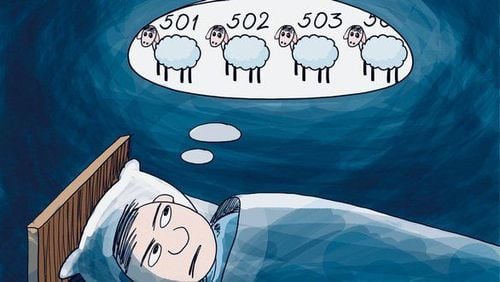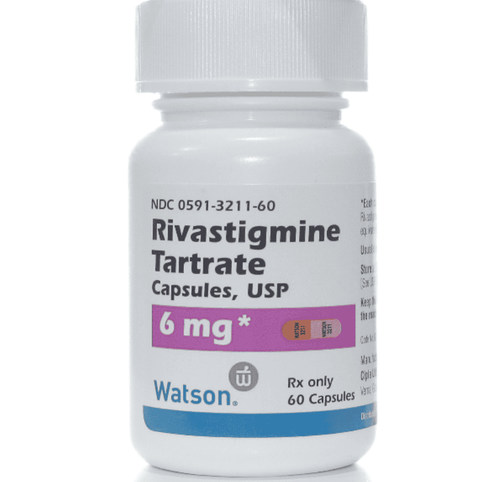This is an automatically translated article.
Dreams are collections of hallucinations that occur during certain stages of sleep. Scientists already know a lot about the role sleep plays in regulating metabolism, blood pressure, brain function and other aspects of health. But studies are still difficult to explain whether dreaming during sleep plays a role or whether dreaming during sleep is good.
1. The role of dreams
Researchers still don't completely agree on the purpose of dreams. However, there are several beliefs and theories about the role of dreams that have been recognized as follows:
Dreams as therapy
Dreams may be the brain's way of dealing with emotions in life. And because the sleeping brain is active at a much higher emotional level than it is awake, the brain is able to make sensory connections that the conscious self would not make.
Dreams as a response
One of the brain regions most active during dreaming is the amygdala. This is also the part of the brain involved in survival instincts and the fight-or-flight response in the face of stress and threats.
One theory is that because the amygdala is more active during sleep than when awake, it could be the brain's way of preparing the body for a threat ahead.
Fortunately, the brain stem sends nerve signals during REM sleep that relax the muscles. In this way, the patient is completely incapable of running or fighting while sleeping.
Dreams as a way of expressing one's dreams
A theory that explains why we dream when we sleep is because each person always has enough dreams, helping to promote the tendency to be incessantly creative. In fact, there are many artists whose dream is to inspire creative works. Upon awakening, a great idea for a movie or a song was born.
Dreams as a memory assistant
A widely held theory about the purpose of dreams is that they help store memories and important things learned during the day, eliminating memories that are not critical thinking and organizing complex thoughts and feelings.
While it's still not clear how dreams affect memory storage and recall, scientists have shown that dreams can help the brain store important information more efficiently. Time to block stimuli that can affect memory and learning ability.

Mơ nhiều khi ngủ không ảnh hưởng quá lớn đến sức khỏe của bạn
2. What problems can dreams solve for us?
Many times the answer to the problems faced can be found in one's own dreams. Indeed, researchers say during sleep, dreams can offer solutions to difficulties within a week of the troubles starting.
In one study, 470 psychology students from a Canadian university recorded their dreams for a week. Subjects also rated the degree of dream recall as well as the intensity, emotion, and impact of the dream.
Over the next week, participants took a closer look at their most recent dream and noted any associations between the dream and events on a randomly selected date up to a week before the dream. They then also assessed both confidence levels in recalling the event and degree of association between the event and the dream. Next, two independent judges will look at dreams and related events, deciding if dreams incorporate solutions to problems stemming from those events.
Conclusions are dreams that actually try to come up with solutions. The dream world seems to work quickly, offering insights and advice the night after a triggering event and six to seven days after. Furthermore, dreams serve as social and emotional adaptation functions.
In addition, another study has also shown that men and women dream differently while sleeping. For example, young women (18 to 39 years old) recall dreams more often than men of the same age. At the same time, women were more likely to remember their dreams after experiencing stress and describe dreams that were vivid, meaningful, and impactful. Furthermore, the researchers also said that cuffed dream content tends to differ between men and women.
3. What can affect dreams?
A number of factors can affect the body even when awake and even in dreams:
Health condition
One of the biggest influences on dreams is how much or how little sleep. Lack of sleep for a night or two or more can make parts of the brain more active. The brain may now have more vivid dreams if it's had some tossing nights, and is also more likely to recall those dreams.
Pregnant women often have more vivid dreams than non-pregnant women. This is because increased hormone production affects the way a pregnant woman's brain processes thoughts and becomes more emotional.
Mental health disorders such as depression and anxiety, as well as bipolar disorder and other mood-related conditions, can cause intense dreams and nightmares, sometimes causing symptoms disturbances in life or negative actions. Medications for these conditions, including antidepressants and antipsychotics, are also associated with a higher risk of nightmares.
Food
There is no denying evidence that food also leads to more negative or better dreams. But it is clear that there are certain foods that can help you remember your dreams better.
For example, high-carb foods can quickly fuel the brain, but after a while, these foods can make people more likely to feel frustrated. In addition, stimulant foods such as caffeine that often keep the brain awake throughout the night can cause users to wake more often during REM and may remember more about their dreams.

Thức ăn giàu carb có ảnh hưởng tới vấn đề hay mơ khi ngủ
Daily activities
Just as less or interrupted sleep often leads to more vivid dreams, a good night's sleep reduces intense dreams recall.
A small study has found that a good way to sleep better is to exercise in the morning. Jogging or doing cardio before noon helps to fall asleep faster.
In addition, the more stress can be reduced during the day, the less likely people will be stressed and anxious at bedtime. That will help minimize nightmares and disrupted sleep each night.
4. How to remember my dreams every night?
One of the reasons dreams are difficult to recall is because the brain chemical involved in memory - norepinephrine - and the brain's electrical activity that helps with recall is always at its lowest during dreaming. In fact, if there is a dream but cannot wake up in the dream, people will not be able to remember it. Recallable dreams are ongoing and waking dreams.
Two ways to help recall dreams is to tell yourself in your sleep that you want to remember your dreams. If that is the last thought, the person will be more likely to wake up with a dream that is still fresh in the memory.
Since dream recall can be easily interrupted even when distracted, people should try to remember as many of their dreams as they wake up. Postpone sitting up, getting out of bed, or focusing on anything else. Try to capture any images or memories you had in the dream, tell others, describe in as much detail as possible. Another way is to write down what you see in your dream in a pad by your bed or on your smartphone for better recall later.
In short, if you've ever been worried about whether it's good to dream while sleeping, you will feel more comfortable knowing that dreaming or sleeping are just reflections of the real world that you are facing. Moreover, the dreamer who sleeps a lot can sometimes get rid of the difficulties encountered, reorganize the memory and release the wishes to be achieved. However, people must ensure good sleep hygiene and avoid stress so that sleeping often brings positive energy for real life.
Please dial HOTLINE for more information or register for an appointment HERE. Download MyVinmec app to make appointments faster and to manage your bookings easily.
Reference sources: webmd.com, healthline.com












